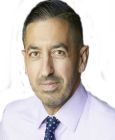Social Life
Supporting Free Speech in a Divided Moment
Let's balance the values of respect, inclusion, and free expression.
Posted January 30, 2024 Reviewed by Ray Parker
The phrase “freedom of speech” is so familiar and core to all we do that its familiarity can make it seem vague and hard to define. It is worthwhile, then, to continually clarify what we mean by it and why a commitment to free speech should remain core to all we do in the idea space.
We are committed to free speech because a free exchange of ideas creates space for a plurality of perspectives toward elevating the ideas that support a healthier world. The work of creating a healthier world is, in large part, the work of acting on ideas and data that emerge from a context of free inquiry and open debate.
It is important, then, to create space for the expression of a plurality of ideas that is, as much as possible, free from undue limits. At the same time, it is necessary to carefully define those limits to maintain the integrity of our conversations. Speech and thought are not truly free if they always make us comfortable by reinforcing what we already believe. As a rule, we should pursue the kind of engagement shaped by a range of perspectives toward better understanding issues of consequences for health.
When we make exceptions to this, we should make them in ways that fundamentally prove the rule—a rule that says we should value free speech. We define what is unacceptable to draw a distinction between what is truly beyond the pale of respectful discourse and what is merely heterodox thinking, the latter being something we should encourage, indeed something we cannot do without. For this reason, if we are to place limits on speech, we have a particular responsibility to err on the side of doing so with great care, putting forward well-defined criteria for taking such steps.
First, speech must be open to rejoinders by other speech. We need not provide a platform for speech that is not open to reasoned reply. This includes speech that embraces name-calling, speech that seeks to shout down attempts at rebuttal, and speech that refuses to acknowledge alternate perspectives. Freedom of speech also means the freedom to hear the ideas and perspectives of others. It is important to note that speech and expression need not be threatening, as defined below, to disrupt, nevertheless, or try to shut down the open expression of ideas. Such disruption should be unacceptable, even if we have an obligation to tolerate inconvenience that may arise from creating space for ample expression of feelings and diverse perspectives.
Second, there should be no home for speech that implicitly or explicitly endorses violence or poses threats to others. The purpose of free speech is to provide a space for, at times, spirited disagreement without the threat of violence. We sometimes take this for granted, but it is a relatively recent advance in human history. This history is largely a catalog of violent conflicts between groups that began where, as Hannah Arendt wrote, the speech ended.
It has taken us a long time to do better. Still, we have done better, and maintaining this progress means recognizing that violence is inimical to a context of free speech and open debate and should not be tolerated anywhere. It is also worth noting that the notion of safety has sometimes been over-used to insulate us from speech we do not like. Speech that discomfits us is precisely the type of speech that we should not only tolerate but encourage; it is on us to have the wisdom to recognize when speech is truly dangerous other than being merely provocative.
Third, we should recognize that pursuing a healthier world is built on a foundation of data and intellectual honesty. It is speech that ascribes to these principles that we should prioritize, and we are not obligated to give a platform to speech that traffics in provable falsehoods advanced dishonestly as objective truth. When speech is dissociated from the foundations for fact and data, it has nothing to offer the public debate, muddying the waters and preventing the deeper understanding that advances progress.
We are responsible for elevating speech that sheds light rather than heat by being grounded in fact and reason. In noting this point, one also needs to note that we should have suitable humility in determining when speech may not be factual. It is far too easy to cry “misinformation” to restrict alternative interpretations of facts we may not like. It is on us to be capacious in our tolerance for different takes on the world while also recognizing our real responsibility to curate speech that aligns with reality. The earth is, after all, round, and I do not see that we need to create that much space for flat-earth discussions.
Fourth, it is reasonable for us to expect that speech should honor the principles of inclusion that underpin much of what we do. And conversely, we have an obligation to call out speech that denies the basic dignity, identity, and human rights of others. This includes speech that calls for violations of fundamental rights such as the rights to autonomy, security, and equal protection before the law. To deny the identity of individuals or groups—to suggest they should not exist—is, at a fundamental level, to reject the premises that allow constructive dialogue to take place, creating the risk of real harm. For this reason, we are under no obligation to support such speech.
The conversation about speech is a journey, with no destination we will reach any time soon. It reflects, shapes, and is shaped by the conversation in politics and the broader culture. Such evolution makes it necessary to revisit and re-examine our values regularly and constantly update our engagement with what is most fundamental to our thinking. This includes balancing our values of free speech with our concern for civility, inclusivity, and respect.
A version of this piece appeared in Substack and as a Dean’s Note to the Boston University School of Public Health community.




